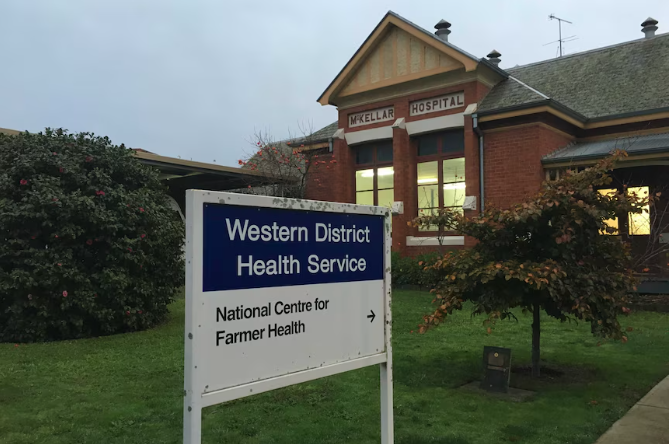
ABC Rural / By Warwick Long, Angus Verley, and Emma Field
Posted Wed 15 May 2024 at 11:25amWednesday 15 May 2024 at 11:25am, updated Wed 15 May 2024 at 5:52pm
| Funding for the National Centre for Farmer Health (NCFH) has been confirmed after the centre previously said the Victorian government had cut their funding. The Victorian government has called representatives of the National Centre for Farmer Health to inform them the funding has been confirmed for another year. A spokesperson from the government said the funding had been found outside the budget through “other sources”. “We’re continuing our support of the centre with a $900,000 investment next financial year — as we have done every year, when in government,” the spokesperson said. “The NCFH plays an important role identifying and preventing chronic disease and safety risk factors in the agriculture and farming community.” Board members of the centre said they were relieved after spending the last few days holding emergency meetings about its future. “It was devastating when we lost the funding and really disappointing,” chair Greg Walcott said. “You’ve got to give credit to the government. We were angry with the decision originally but give credit to someone who has made a mistake and reversed it.” “That’s not usually happening anywhere but certainly [not] in politics. The centre, which is based in Hamilton, south-west Victoria, runs a series of preventative programs to improve farmer physical and mental health, improve workplace safety, and conduct research. Prior to the funding reinstatement, NCFH director Alison Kennedy said the government had confirmed $900,000 in annual funding had been cut. “We have had [the cut] confirmed from staff at both the Department of Health and Agriculture Victoria,” Ms Kennedy said. NCFH used this funding to run core activities and attract funding and grants for health projects and research from around Australia. A dangerous time for farming In 2022, Safe Work Australia listed agriculture, forestry, and fishing as having the highest fatality rate of any industry in the country and work from the National Centre for Farmer Health has been trying to address that issue. Ms Kennedy said the organisation tracked the success of each of its programs. “Farmers have come back to us on a pretty regular basis to say, ‘That actually did save my life,'” she said. “We were able to demonstrate that we save the health system money by running health check programs by preventing cardiovascular disease and type 2 diabetes and absolutely saved lives.” Andrew Perry from Gobur near Alexandra in regional Victoria is one of the farmers who has relied on the services of the NCFH during downturns in the dairy industry and again after widespread flooding in 2022. “These people do terrific work and they keep helping us out,” he said. “Agriculture is $19.5 billion of Victoria’s GDP annually and yet what are we doing [cutting funding], we are pulling away the services that make us the lucky state and the lucky country. “When I say I received help, I probably wouldn’t be here if it wasn’t for these good people.” Uncertain future for farmer health The organisation is a national centre by name but has always run with Victorian funding. Directors were meeting this week to decide the centre’s future with limited funding. “There will be an impact on our ability to deliver direct services to farming communities,” Ms Kennedy said. “We may have to cut back on health checks at field days, our agri-space clinics, the sort of research we can do, particularly long-term larger-size projects. “It will have an impact on the sort of education we can deliver from the postgraduate level down to secondary schools and that direct communication with farming populations themselves.” While the centre has had its funding confirmed for the next year, its future beyond that is still uncertain. The loss of funding in the future would also affect the regional Victorian town of Hamilton, where the National Centre for Farmer Health is based. Ms Kennedy said bringing skilled medical professionals and researchers to a regional community that needed them was critical. |
|
|